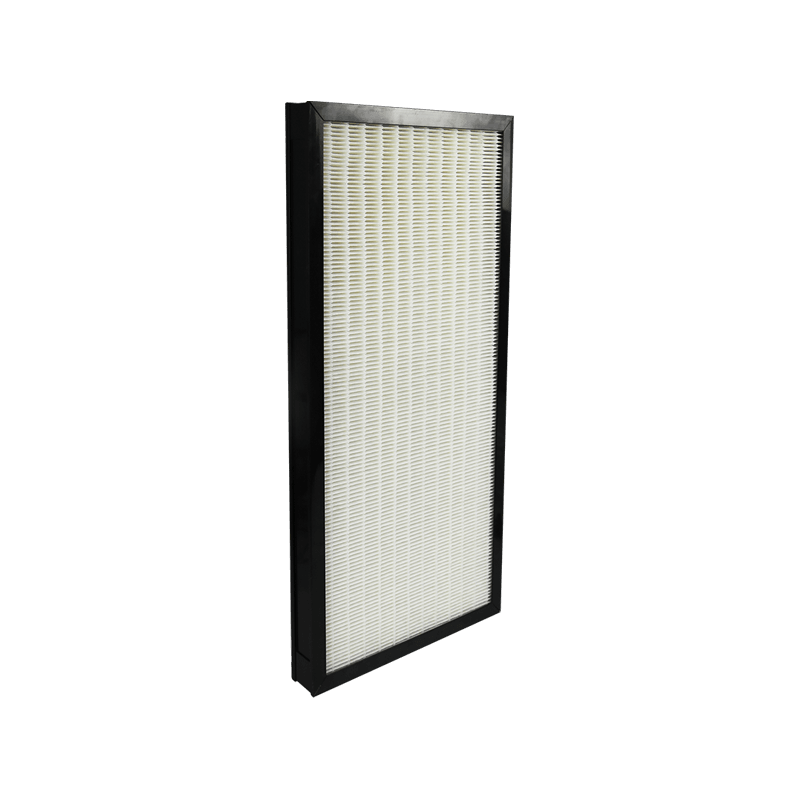From solutions to productions, we’re specialized in making the products you need.
News categories
Product categories
HEPA Filter is essential for maintaining health and well-being
In today’s world, clean air is essential for maintaining health and well-being. Whether in homes, offices, hospitals, or industrial environments, air quality is a growing concern, and one of the most effective ways to ensure that the air we breathe is free from harmful particles is through the use of HEPA filters. Among the various types of air filters available, True HEPA filters stand out as the gold standard for air filtration, renowned for their ability to capture small particles with high efficiency.
HEPA filters are typically made of a dense mat of fibers, usually composed of a combination of fiberglass and other synthetic materials. The fibers are arranged in such a way that they trap particles through various mechanisms such as interception, impaction, and diffusion. These processes work together to efficiently filter out dust, pollen, pet dander, bacteria, viruses, and other airborne contaminants.
True HEPA filters work by using a physical barrier to trap particles that pass through the filter. The filter’s dense fiber structure allows air to flow through while capturing harmful particles that are suspended in the air. As air is drawn into the filter, the particles collide with the fibers and are trapped inside. The three primary methods by which a True HEPA filter captures particles are:
When particles flow through the filter, they may come into contact with fibers and become stuck.

Larger particles are unable to follow the air stream due to their size and inertia, so they collide with the fibers and are captured.
Smaller particles are forced to move in random directions due to their small size, which increases the chances of them colliding with the fibers and being trapped.
This multi-step process ensures that even the tiniest particles are captured, making True HEPA filters extremely effective at cleaning the air.
The most significant benefit of True HEPA filters is their ability to improve indoor air quality. By capturing 99.97% of airborne particles as small as 0.3 microns, these filters can remove a wide variety of pollutants, including dust, pet dander, mold spores, pollen, and even some bacteria and viruses.
Clean air is vital for good health, especially for individuals with respiratory conditions like asthma, allergies, or chronic obstructive pulmonary disease (COPD). True HEPA filters can significantly reduce symptoms related to these conditions by removing allergens and irritants from the air. They are also beneficial for people who suffer from seasonal allergies, as they can effectively trap pollen.
While True HEPA filters are highly effective at trapping particles, many air purifiers equipped with HEPA filters also include additional stages of filtration, such as activated carbon filters, that can remove odors and volatile organic compounds (VOCs) from the air. This combination provides cleaner and fresher air in spaces where odors are a concern.
True HEPA filters are designed to last for a long time with minimal maintenance. Regular cleaning or replacement of the filter ensures that the filter continues to work efficiently. Many HEPA filters are designed to last several months to a year, depending on usage, making them a low-maintenance solution for air purification.
True HEPA filters are commonly used in air purifiers to improve air quality in homes. They are especially helpful in households with pets, smokers, or people suffering from allergies and asthma.
Hospitals, clinics, and other healthcare settings use HEPA filters in ventilation systems to create clean, sterile environments. HEPA filtration is also crucial in operating rooms to prevent the spread of infections.
In industrial settings, HEPA filters are used in clean rooms, laboratories, and manufacturing plants to protect products and processes from contamination by airborne particles. They are also used in commercial air filtration systems to ensure healthy environments for employees and customers.
Many modern cars are now equipped with HEPA filters in their air conditioning systems to provide clean air for drivers and passengers. This is especially important in cities with high levels of pollution or allergens.
When choosing a True HEPA filter, it’s essential to look for certifications and ensure that the filter meets the 99.97% efficiency standard for particles as small as 0.3 microns. Not all filters labeled as "HEPA" are the same, and some may only capture a small percentage of pollutants, so it’s important to choose a reputable brand or model with verified performance.
How do activated carbon filters play a key role in air and water purification?
Activated Carbon Air Filters: The Key to Cleaner, Healthier Air
related products
Copyright 2023 Nantong Henka Environment Solutions Co.,Ltd. All Rights Reserved


 English
English русский
русский Español
Español 简体中文
简体中文

























